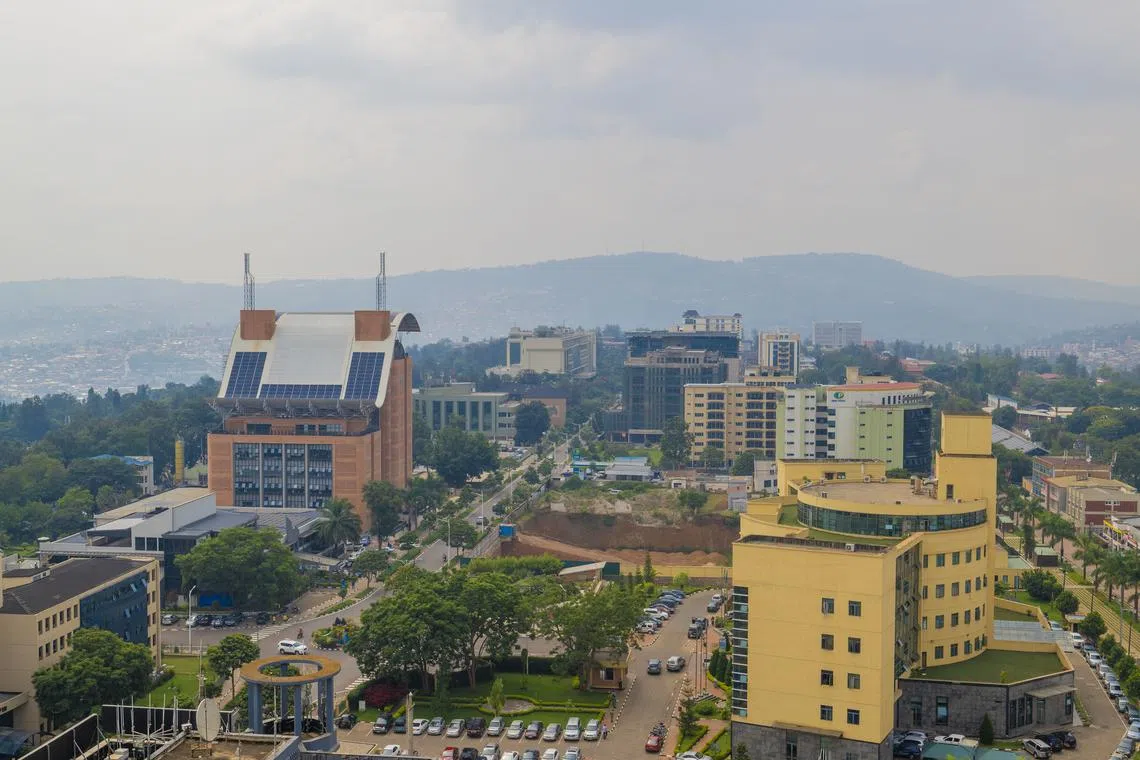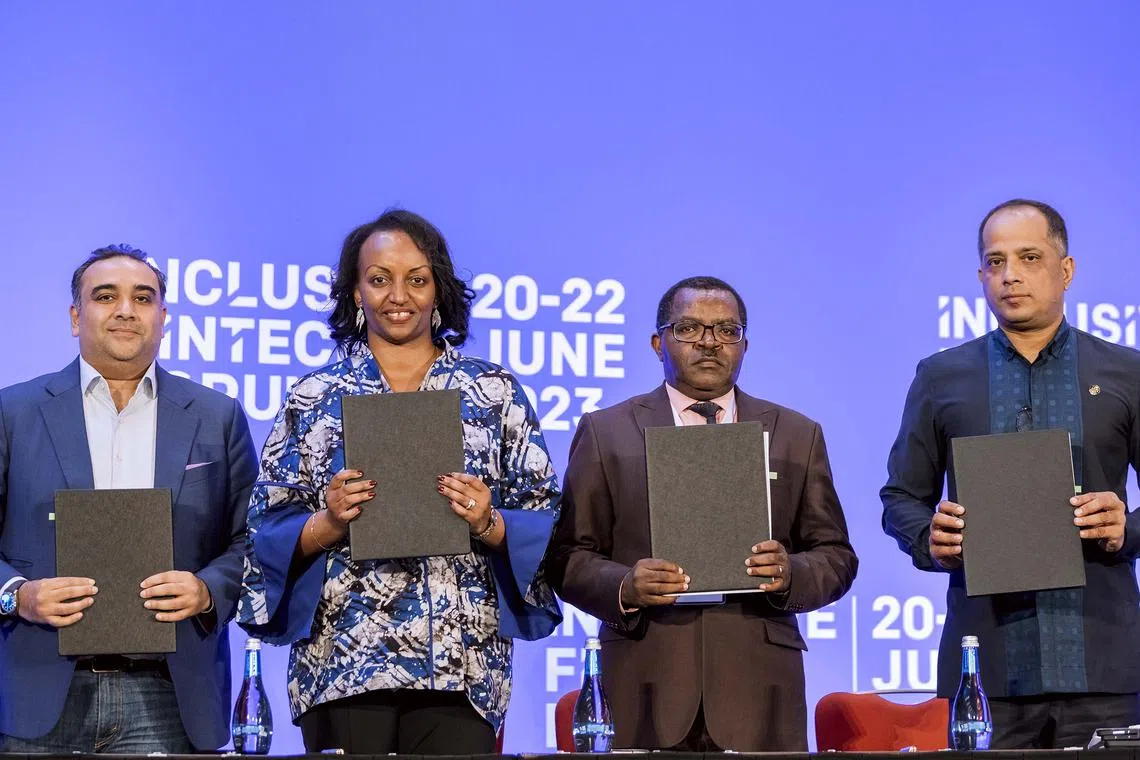Two Singapore fintech firms have a head start as Africa makes digital payment push
Sign up now: Get ST's newsletters delivered to your inbox

About 100 Singapore companies are present in 40 countries in Africa as at November 2024.
PHOTO: GOVERNMENT OF RWANDA
Follow topic:
SINGAPORE - Driven by a mission to make cross-border trade more efficient, two Singapore-based fintech firms are making bold strides into Africa and are set to benefit as the continent’s digital payments infrastructure takes shape.
They have been in Africa for some years, expanding from Ghana in the west to Rwanda in the east.
The African continent comprises 54 countries, with a total population of 1.4 billion.
Liquid Group, a fintech company specialising in global digital payment solutions, facilitates cross-border trade payments between Asia and Africa through partnerships with banks in Rwanda and Ghana.
It partners the banks to source for importers and exporters in Rwanda and Ghana, and helps them by facilitating payments and collections to and from their counterparts in Asia, said Mr Jeremy Tan, founder and chief executive of Liquid Group.
“We essentially use Rwanda to cover our East Africa outreach and Ghana to cover West Africa,” Mr Tan told The Straits Times.
About 100 Singapore companies are present in 40 countries in Africa as at November 2024.
Proxtera, which operates an open network to make cross-border trade easier by connecting small and medium-sized enterprises to finance and other trade-related services, started venturing into Rwanda in 2023 after first entering Ghana in 2022.
Mr Saurav Bhattacharyya, chief executive of Proxtera, said the company first expanded into the two nations to “understand the African market better and get to an early success point regionally”, given that other countries such as Nigeria, Ethiopia and Kenya are much larger economies that could require the firm to deploy more resources.
Both Ghana and Rwanda have fintech activities and forward regimes to support fintech companies, said Mr Bhattacharyya.
The Bank of Ghana and the National Bank of Rwanda signed a memorandum of understanding on Feb 25 at the Inclusive FinTech Forum 2025 (IFF) to establish a licence passporting framework to facilitate easier cross-border operations for regulated fintech firms licensed by either country’s central bank.
Fintech firms in Ghana and Rwanda will then be able to expand their services with minimal additional regulatory requirements.
The MOU also included the exploration of cross-border payment interoperability across Africa.

(From left) Proxtera chief executive Saurav Bhattacharyya, National Bank of Rwanda governor Soraya M. Hakuziyaremye, Business Development Fund CEO Vincent Munyeshyaka and Group CEO of Global Finance & Technology Network Sopnendu Mohanty.
PHOTO: GLOBAL FINANCE & TECHNOLOGY NETWORK
The project will identify gaps in existing payment systems, particularly cross-border payments, Singapore’s Minister of State for Culture, Community and Youth, and Trade and Industry Alvin Tan said on Feb 25 at IFF.
It aims to build system enhancement specifications, coordinate implementation road maps and provide policy inputs for cross-border payment governance and operational matters, Mr Tan said, noting that the initiative is expected to set a new standard for digital payments to drive financial inclusion and sustainable growth in Africa.
At the forum, former governor of the National Bank of Rwanda John Rwangombwa said that cross-border transactions remain costly and inefficient in Africa, limiting trade and financial inclusion.
Firms like Liquid Group and Proxtera are expected to benefit from the initiative, which will work towards creating a system that facilitates instant, low-cost and secure payments across African borders.
Mr Tan of Liquid Group said that the initiative is a meaningful and crucial one.
“It will enable payment firms like us to leverage their developments to offer global payment solutions that cover extensive parts of Africa,” he said.
Mr Bhattacharyya said while such projects take time to come to fruition, the collaborative aspect of the initiative presents a higher probability and hope that the 54 countries of Africa will be connected through one or more interconnecting systems.
Such payments infrastructure interconnecting African countries paves the way for financial settlements, a much-needed tool serving cross-border trade, he added.
Other Singapore firms have also expanded into Africa, embarking on national projects.
Investment firm GenZero in September 2024 said that it signed an agreement with Rwanda to collaborate on projects to generate carbon credits to offset emissions.
GenZero also announced in May 2024 that it was one of the investors backing the first phase of an ecosystem restoration project in South Africa.
Urban planning firm Surbana Jurong has been involved in many projects across Africa. One of Surbana Jurong’s major projects was designing an updated 2050 master plan for Rwanda’s capital, Kigali, which was approved by the city council.

